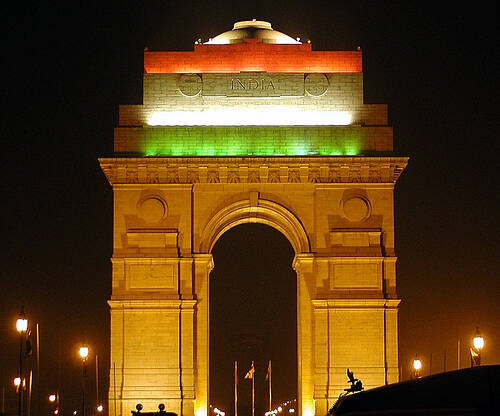New Delhi — As you know from my twoprevious posts in recent weeks, I’ve been on a lecture tour of sorts, giving the Westcott-Teape Lectures in Chennai, Kolkata, and here in New Delhi. As I explained previously, this lectureship was endowed more than 60 years ago, with the purpose of furthering Hindu-Christian understanding. Accordingly, the theme of my three lectures has been “The Future of Hindu-Christian Studies.” I explained to my listeners, most recently at St. Stephen’s (one of the premiere colleges in India), that my focus on study and studies has been intentional and narrow. This is because even in the wider sweep of interreligious relations here in India today, dialogues, sharing, and even conflicts, in the course of everyday life, there is a desperate need for us—all religious people, but in this case Hindus and Christians—to step back, quiet down and engage in the hard work of studying each other’s religions in depth. My three themes—ups and downs in the Jesuit study of Hinduism; the Hindu study of Christianity and Western thought; and the state of the study of religion and religions in the United States today—are three among the many angles one might take in getting at study as an intellectual/spiritual practice.
Reactions to the lectures in all three cities were very positive—Indian Hindus and Christians have always been most kind to me—and some interesting questions arose over and again: Don’t you need to talk more about the Protestant theologians who studied Hinduism? (Definitely, I/we need to, but I had only three lectures!) Given the many reasons why scholars do their work, how could we possibly be sure whether those who study Hinduism are doing it for spiritually nuanced intellectual reasons, and not just as the work of an academic post? (We certainly cannot be sure, but the goal of spiritual-intellectual study is still desirable, even in modern academic circles when other factors too drive such study.) Since it is clear that the real agents of change in society are rarely professors, why not urge Hindus and Christians instead to collaborate in social action, or in prophetic work with the people, to change society? (Let those charismatic persons who can change the world directly do so – and let us teachers and scholars do the best we can with what we have and are!)
One other question came up in various forms, with some urgency: is this the right moment for “Hindu-Christian studies,” given that (as I mentioned in my previous post) the new right-of-center government of Prime Minister Modi and the BJP (Bharatiya Janata Party) has a strong Hindu character to it, that is less accommodating and friendly to the many religious minorities of India. If, as now, the BJP has a solid majority of its own, it does not need minority support, and certainly not that of the tiny (less than 3 percent) Christian minority in the country. So wouldn’t it be prudent under the circumstances to be cautious and careful, to pull back from more active programs of dialogue and study—and in any case, to put aside romanticism about the intellectual and spiritual convergence of the Hindu and the Christian? Here I was quick first of all to say that I am hardly in a position to advise on the overall, sensitive situation—I am a visitor, after all. I would also point out that Hindu-Christian studies today is, if anything, a global phenomenon: neither religion, nor their encounter, is the “just in India” any more, and so the political situation in India now, though urgent and of concern, is not decisive regarding this study. But most importantly, and admitting the limited reach and impact of the scholar, it is still the case that times of conflict—political, social, violent—beg for more and not less intellectual exchange. When things break down and fanatics or schemers become bold, and before that too, we need to know each other better and more deeply—with more and not less wisdom, learning deepened and chastened by love and compassion. Some few, in any religious community, and among communities, need to step back, listen, learn, study the other deeply, so as to change at home. So yes, in 2015, Hindu-Christian studies is of great value. Or so I think.
I didn’t have a lot of time in Delhi for much else, though I was happy to spend time with the Jesuits here at Vidyajyoti (the Jesuit formation/theology center in Delhi), give a lecture for the staff and students, and join them at Mass and breakfast each day, and give another lecture also at Jesus and Mary College in the city. Several times, I passed by the Gate of India and the centers of government, and all is in a bustle for the January 26 Republic Day, preparations in full swing, army in evidence everywhere, all of this particularly notable this year because of the impending visit of President Obama. India is, despite some uncertainties, feeling rightly proud and strong, ready to claim itself rightful place as one of the world’s great nations—long overdue.
After three weeks here, I feel fully at home once again, all systems rolling, sleep cycle normal, and with the prospect of so many more things to see and do here in India – and so, it is with the usual chagrin that I get on the plane tomorrow and head back to wintry Cambridge, MA for the second semester. In some future post, I will tell you more about what’s up at Harvard Divinity School and the Center for the Study of World Religions in the months to come.







